|
|
|
|
Australians and New Zealanders can now say kia ora or g'day in person, courtesy of the freshly inflated travel bubble between the two nations. And Prime Minister Scott Morrison has also flagged the possibility of reinstating limited overseas travel to other places too. Eventually, Australia will inevitably have to reopen its borders to the wider world. So what is the exact risk in doing so?
Epidemiologist Tony Blakely explains it will depend on three broad factors: not just how many Australians are vaccinated, but also the number of COVID cases in the countries from which travellers are arriving, and the specific ways in which their quarantine and social distancing are handled once they arrive on our shores.
To take two pertinent examples, this means the risk of allowing in visitors from the UK, where until recently up to 2% of the entire population was infected at a given time, is greater than welcoming those from China, where per capita infection numbers have been much lower. The risk can be reduced further with an effective vaccine rollout and strong quarantine and monitoring. But because the risk depends on the coronavirus situation in any visitor’s homeland, we can expect the overall risks to fluctuate dramatically over the coming months.
Speaking of the vaccine rollout, news emerged last week we’ll probably need a third dose of the Pfizer vaccine within 12 months of being immunised, and a fresh dose every year as our immunity wanes and new variants of the virus emerge. As viral immunologist Nathan Bartlett explains, one advantage of these mRNA vaccines is they’re much easier and quicker to update than other types — so Australia should prioritise mRNA COVID vaccines such as Pfizer in the long term.
|
Michael Hopkin
Editor, Science + Technology, Health + Medicine
|

|
|
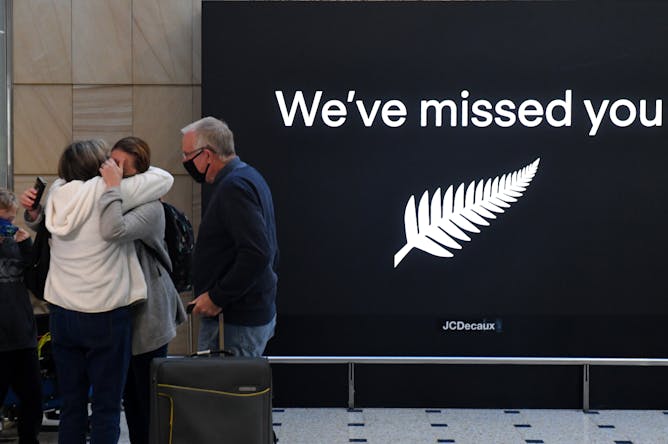
Mick Tsikas/AAP
Tony Blakely, The University of Melbourne
The amount of risk from overseas arrivals depends not just on Australia's vaccination rates, but also on the particular circumstances of the country from which people are travelling.
|

Paul Zinken/AP/AAP
Nathan Bartlett, University of Newcastle
Our best long-term strategy is to rely on the mRNA vaccines like Pfizer and Moderna.
|
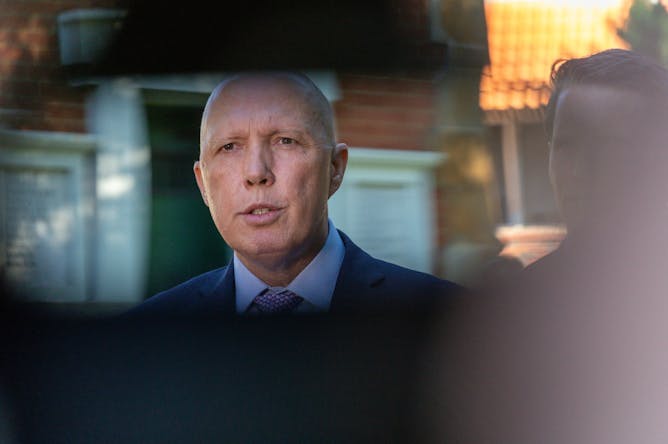
Richard Wainwright/AAP
Michelle Grattan, University of Canberra
The political power of veterans is being put on show - as the government announces plans for a royal commission into veteran suicide.
|

Moving the Line video screenshot/Good Society
Amanda Keddie, Deakin University
A gender-justice researcher reviewed the entire newly released government sexuality education resource for teachers. She found several significant problems.
|

Shutterstock
Jeannie Marie Paterson, The University of Melbourne; Elise Bant, The University of Western Australia
To deter Google and other big tech companies from misleading users about data collection, the Federal Court should impose heavy fines.
|
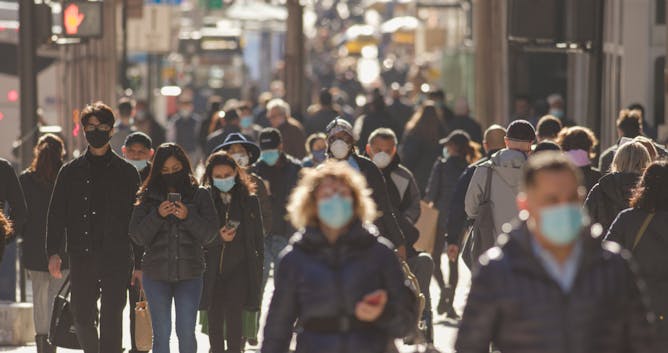
www.shutterstock.com
Ilan Noy, Te Herenga Waka — Victoria University of Wellington; Nguyen Doan, Te Herenga Waka — Victoria University of Wellington
Measuring the equivalent economic cost of 'lost life years' due to the pandemic allows us to map the true scale of the crisis.
|
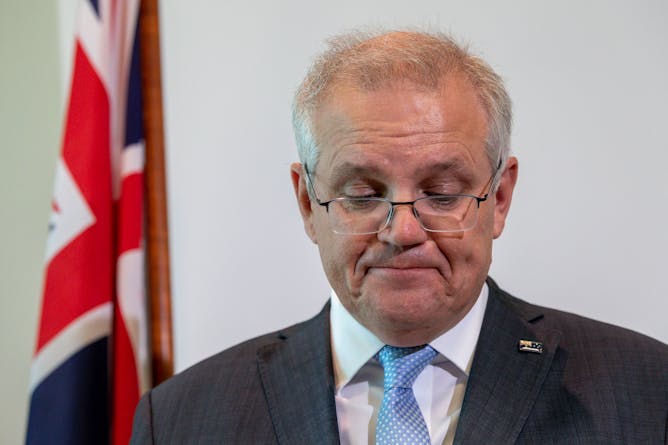
original.
Mark Kenny, Australian National University
Australia was promised a world-class vaccine program. But instead of a rollout, we got an eekout.
|
Arts + Culture
|
-
Jen Webb, University of Canberra
In this instalment of our fantasy art travel series, Jen Webb yearns to revisit London, a special aunt and a very big arachnid.
-
Ted Snell, Edith Cowan University
It may be the greatest robbery you've never heard of. In 1990 thieves stole US$200 million worth of art from a Boston gallery. A new Netflix series seeks to find the culprits.
|
|
Business + Economy
|
-
Ben Phillips, Australian National University
The most stressed are Australians on JobSeeker and single parents.
|
|
Science + Technology
|
-
Chris Reid, Macquarie University; Daniele Carlesso, Macquarie University
A type of structure called a 'scaffold' acts like a safety net for ants when they go foraging, preventing them from slipping on steep surfaces.
-
Lisa Kewley, Australian National University
Astronomy has been hailed as one area of science making moves to promote gender equity. But new modelling suggests targets are still not being met, and more effort is needed to nurture womens' careers.
-
Katharine Kemp, UNSW
Companies are allowed to track users as much as they like — as long as they spell it out in the fine print. But a ground-breaking Australian legal judgement should give them pause.
-
Megan Munsie, The University of Melbourne; Julian Koplin, The University of Melbourne
Researchers made human-monkey chimeras, by adding human stem cells to monkey embryos. Some embryos were cultured for 19 days after fertilisation.
|
|
Environment + Energy
|
-
Gregory Moore, The University of Melbourne
Native deciduous trees are rare in Australia, which means many of the red, yellow and brown leaves we associate with autumn come from introduced species.
-
George Wilson, Australian National University; John Read
If a bill before the US Congress succeeds, it would further suppress global demand for kangaroo products and lead to more animal suffering, not less.
|
|
Politics + Society
|
-
Michelle Grattan, University of Canberra
As Scott Morrison gradually pivots his climate policy towards embracing a target of net zero emissions by 2050, he is seeking to distinguish the government from “inner city” types and political opponents who've been marching down that road for a long time.
|
|
Health + Medicine
|
-
Tony Blakely, The University of Melbourne
The amount of risk from overseas arrivals depends not just on Australia's vaccination rates, but also on the particular circumstances of the country from which people are travelling.
|
|
| |
Featured jobs
|

|
— Melbourne VIC, Australia
|
|
|
|
| |
| |
| |
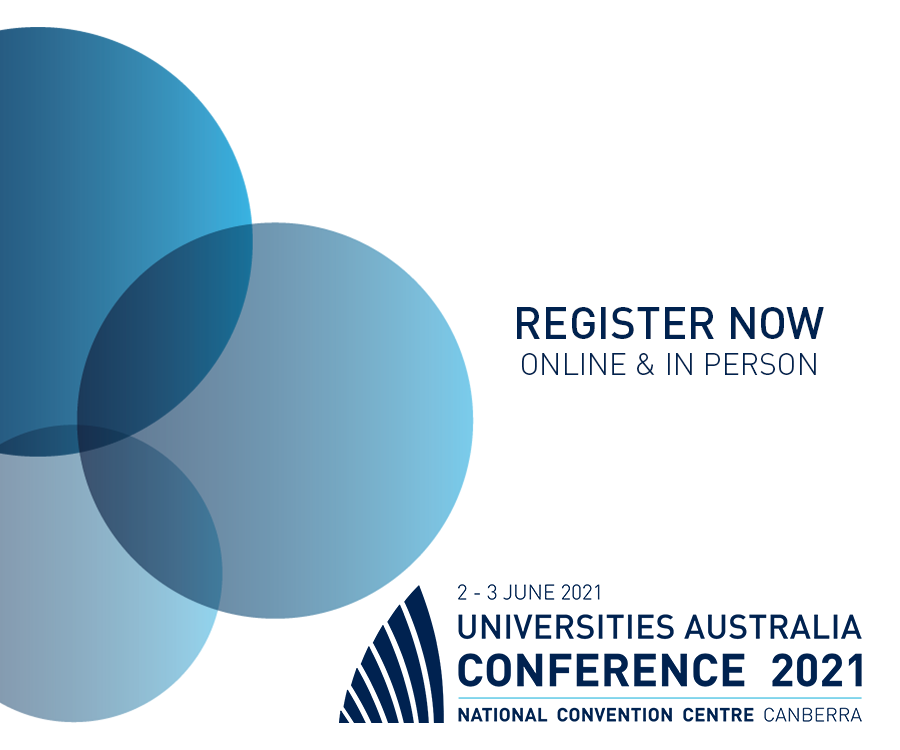
|
| |
| |
| |
Featured Events & Courses
|

|
Parkes Place, Canberra, Australian Capital Territory, 2600, Australia — National Library of Australia
|

|
Level 21, 15 Broadway, Ultimo, New South Wales, 2007, Australia — University of Technology Sydney
|

|
8 week online course by BehaviourWorks Australia, Clayton, Victoria, 3800, Australia — Monash University
|

|
Building 32.101, 270 Joondalup Drive, Joondalup, Western Australia, 6027, Australia — Edith Cowan University
|
|
|
|
| |
| |
| |
| |
| |
|
|
|
|
|
|
|